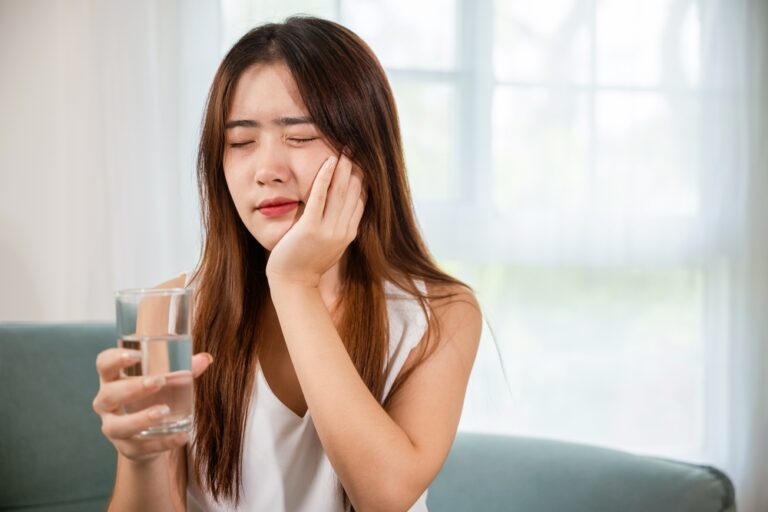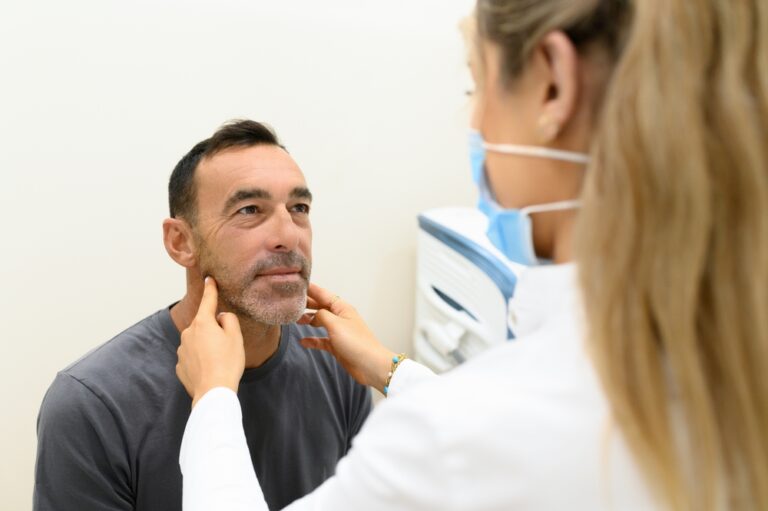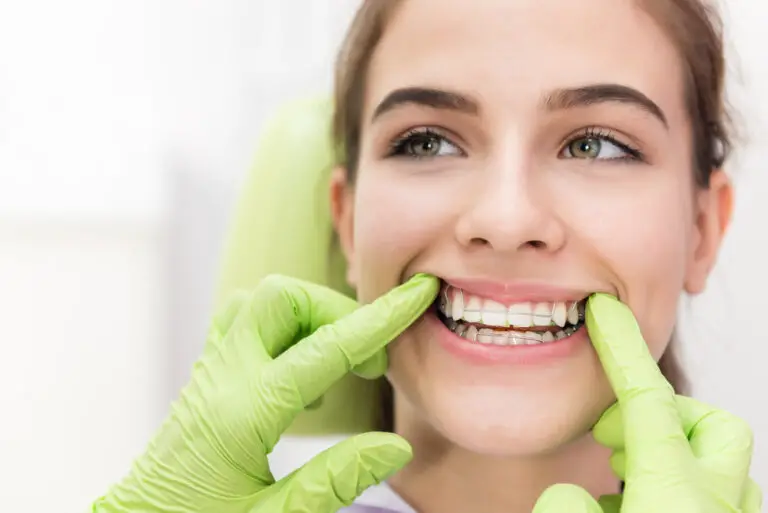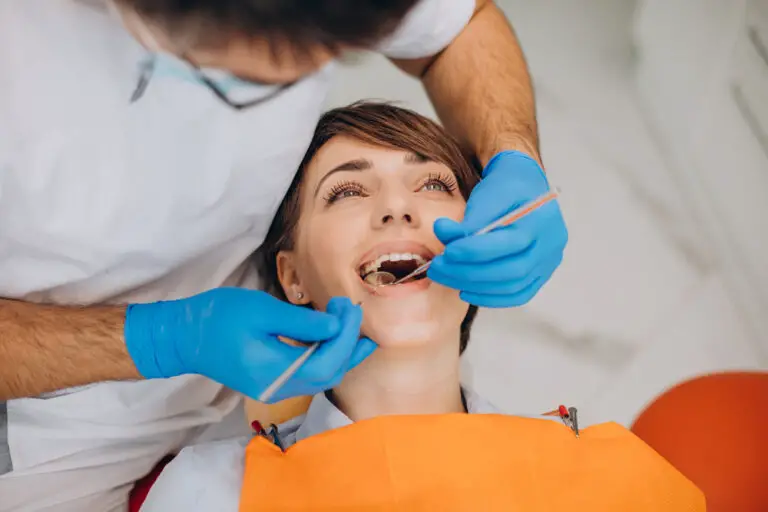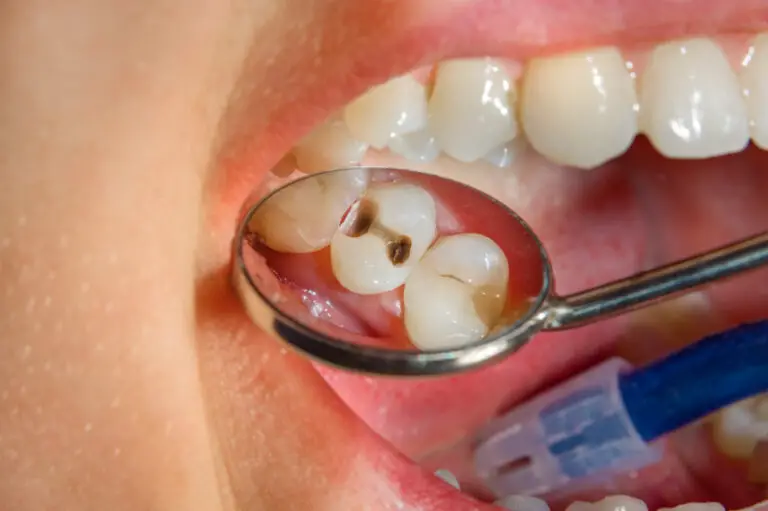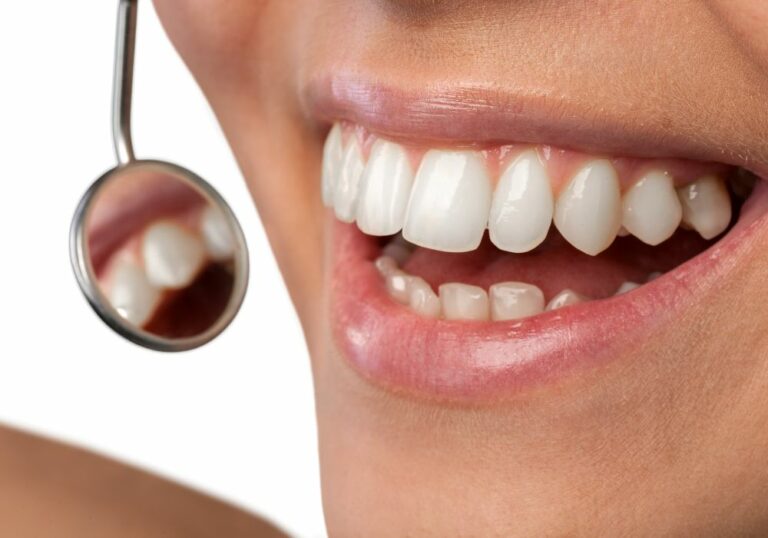Teeth pain can be a real problem, especially when it strikes at night. It can be difficult to fall asleep or stay asleep when you are experiencing tooth pain. There are many reasons why teeth may hurt at night, and understanding these reasons can help you find relief.
One of the main reasons why teeth may hurt at night is due to the role of circadian rhythms. These rhythms are our body’s natural clock, and they can affect everything from our sleep patterns to our hormone levels. When it comes to tooth pain, circadian rhythms can cause inflammation and swelling to increase at night, leading to increased pain.
Key Takeaways
- Understanding the role of circadian rhythms can help explain why teeth may hurt more at night.
- Sleeping position can also play a role in nighttime tooth pain.
- Preventing nighttime tooth pain may involve practicing good oral hygiene and seeking professional help when necessary.
Understanding Tooth Pain
Tooth pain can be a frustrating and uncomfortable experience. It can disrupt your sleep and make it difficult to eat or drink. Understanding the causes of tooth pain can help you take steps to prevent it and find relief when it occurs.
Causes of Tooth Pain
Tooth pain can be caused by a variety of factors, including:
- Tooth decay: When bacteria in the mouth produce acid that eats away at the tooth’s enamel, it can lead to cavities and tooth pain.
- Gum disease: When the gums become infected, they can pull away from the teeth, exposing the roots and causing pain.
- Tooth abscess: An abscess is a pocket of pus that forms at the root of a tooth, causing pain and swelling.
- Tooth sensitivity: When the tooth’s enamel is worn down, it can expose the sensitive inner layer of the tooth, causing pain when exposed to hot, cold, or sweet foods or drinks.
- Trauma: A blow to the mouth or a fall can cause tooth pain and damage.
Nighttime Aggravation
Tooth pain can often feel worse at night, making it difficult to sleep. There are several reasons why this might be the case:
- Sleeping position: When you lie down, blood flow to the head and face increases, putting pressure on sensitive areas in the mouth and exacerbating tooth pain.
- Bruxism: Grinding or clenching your teeth at night can cause tooth pain and damage.
- Sinus pressure: Sinus infections or allergies can cause pressure to build up in the sinuses, which can aggravate tooth pain.
If you are experiencing tooth pain, it is important to see a dentist to determine the cause and receive appropriate treatment. In the meantime, over-the-counter pain relievers, such as ibuprofen or acetaminophen, can help alleviate discomfort. Applying a cold compress to the affected area can also help reduce swelling and numb the pain.
The Role of Circadian Rhythms
Circadian rhythms are the body’s natural 24-hour cycles that govern various physiological processes, including sleep and wakefulness. These rhythms are regulated by the body’s internal clock, which is located in the suprachiasmatic nucleus (SCN) of the hypothalamus. The SCN receives input from the retina, which helps to synchronize the body’s internal clock with the external environment.
Research has shown that circadian rhythms can play a role in the perception of pain. In a study published in the journal “Pain,” scientists found that pain tolerance is lowest during the night and highest during the morning, suggesting that circadian rhythms may influence the body’s sensitivity to pain.
Furthermore, circadian rhythms have been linked to various sleep disorders, including sleep bruxism, which is characterized by teeth grinding during sleep. Sleep bruxism is more common than awake bruxism and can cause significant damage to the teeth and jaw.
In conclusion, the body’s circadian rhythms can play a significant role in the perception of pain and the development of sleep disorders such as sleep bruxism. Understanding the relationship between circadian rhythms and oral health can help individuals take steps to manage their symptoms and improve their overall well-being.
Influence of Sleeping Position
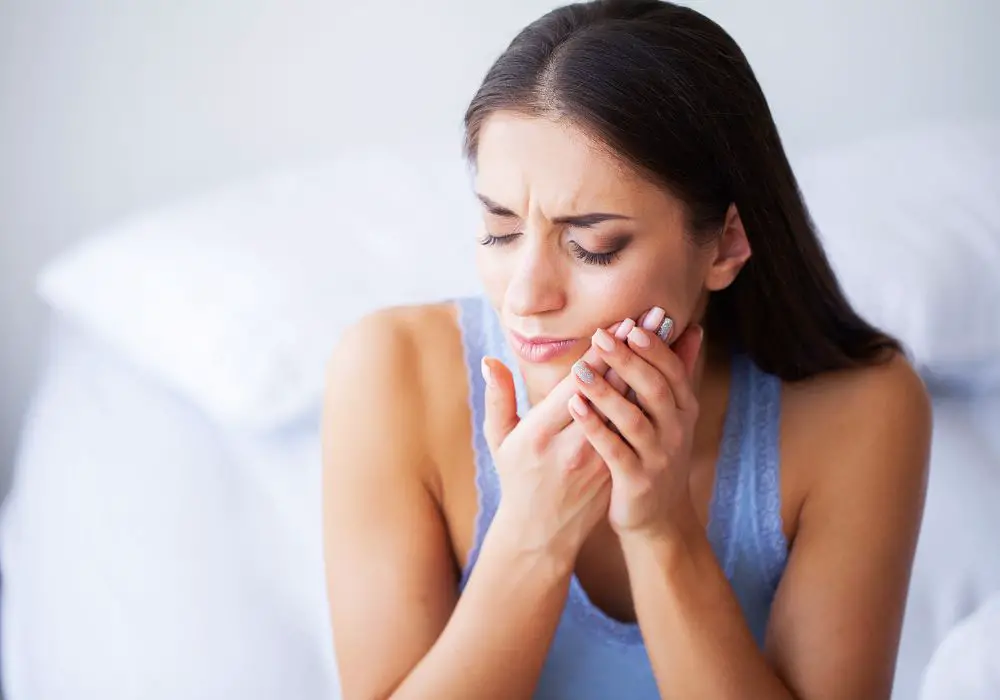
Your sleeping position can have a significant impact on the severity of tooth pain you experience at night. Here are some things to keep in mind:
- Sleeping on your stomach can put pressure on your jaw and cause tooth pain. This position can also cause your head to turn to one side, which can lead to strain in your neck and jaw muscles.
- Sleeping on your back can help alleviate tooth pain, as it allows for proper alignment of your head, neck, and spine. However, if you snore or have sleep apnea, this position may not be the best choice for you.
- Sleeping on your side is generally a good option for those with tooth pain, as it can help alleviate pressure on your jaw. However, it’s important to make sure you’re not putting too much pressure on one side of your face, as this can lead to muscle strain and tooth pain.
In addition to your sleeping position, it’s also important to make sure you’re using a supportive pillow and mattress to help keep your spine and neck properly aligned. This can help reduce muscle strain and alleviate tooth pain.
Grinding and Clenching Teeth
Teeth grinding and clenching, also known as bruxism, is a common condition that affects many people. It occurs when you unconsciously grind or clench your teeth, often during sleep. According to the American Dental Association, stress and anxiety, an abnormal bite, and crooked or missing teeth can all lead to bruxism.
Mild bruxism may not require treatment, but in some people, it can be frequent and severe enough to lead to jaw disorders, headaches, damaged teeth, and other problems. If you or your child has bruxism, your doctor may suggest ways to preserve or improve your teeth, such as splints and mouth guards. These are designed to keep teeth separated to avoid the damage caused by clenching and grinding.
If you suspect that you may be grinding or clenching your teeth at night, there are a few signs and symptoms to look out for. These include:
- Worn, flattened, or chipped teeth
- Waking up with a headache or sore jaw
- Pain or sensitivity in the teeth, jaw, or face
- Difficulty opening and closing the mouth
If left untreated, bruxism can cause significant damage to your teeth and jaw. It’s important to talk to your dentist or doctor if you suspect that you may be grinding or clenching your teeth at night.
Preventing Nighttime Tooth Pain
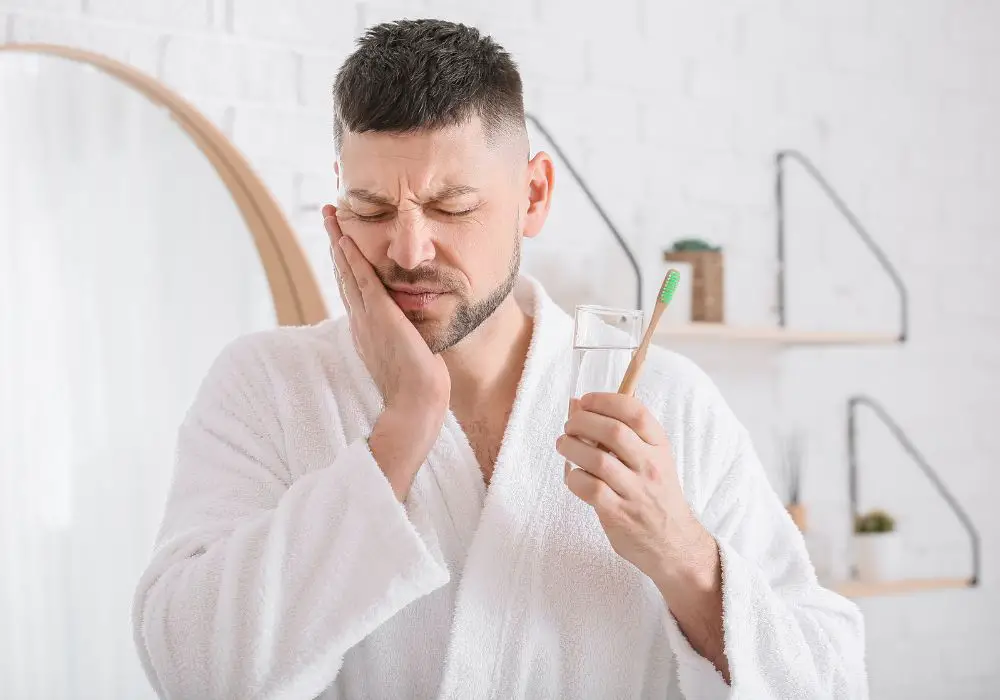
Oral Hygiene Habits
Maintaining good oral hygiene habits is essential to prevent tooth pain at night. Here are some tips to follow:
- Brush your teeth twice a day with fluoride toothpaste.
- Floss at least once a day to remove food particles and plaque from between your teeth.
- Use an antiseptic mouthwash to kill bacteria and freshen your breath.
- Replace your toothbrush every three to four months or sooner if the bristles are frayed.
Dietary Considerations
What you eat and drink can also affect your teeth and cause pain at night. Here are some dietary considerations to keep in mind:
- Limit your intake of sugary and acidic foods and drinks, such as candy, soda, and fruit juices.
- Drink plenty of water to keep your mouth hydrated and rinse away food particles and bacteria.
- Chew sugarless gum after meals to stimulate saliva production, which helps neutralize acids and prevent tooth decay.
- Eat a balanced diet rich in vitamins and minerals, especially calcium and vitamin D, which are essential for strong teeth and bones.
By following these oral hygiene and dietary habits, you can help prevent nighttime tooth pain and keep your teeth healthy and strong.
When to Seek Professional Help
If you experience severe tooth pain at night, it is important to seek professional help. Here are some signs that indicate you should see a dentist:
- The pain is severe and does not subside.
- You have a fever or swelling in the mouth or face.
- You have difficulty swallowing or breathing.
- You notice pus or discharge around a tooth.
- You have a foul taste in your mouth.
A dentist will be able to diagnose the cause of your tooth pain and recommend appropriate treatment. Depending on the underlying cause of your toothache, your dentist may recommend:
- A filling or crown to repair a damaged tooth.
- Root canal therapy to remove infected tissue from inside the tooth.
- Extraction of a severely damaged or infected tooth.
- Antibiotics to treat an infection.
Ignoring tooth pain can lead to serious complications, including the spread of infection to other parts of the body. Therefore, it is important to seek professional help as soon as possible if you experience severe tooth pain at night.
Frequently Asked Questions

How do you stop severe tooth pain at night?
There are several things you can try to alleviate tooth pain at night. First, try to elevate your head while sleeping to reduce blood flow to the affected area. You can also apply a cold compress to the outside of your cheek or take over-the-counter pain medication. If the pain persists, it is best to consult a dentist.
Why does my tooth pain intensify at night?
Tooth pain can intensify at night for several reasons. One possibility is that when you lie down, blood rushes to your head and puts pressure on the nerves in your mouth, leading to increased pain. Additionally, tooth pain may be worsened by clenching or grinding your teeth at night.
Tooth and jaw pain when lying down
Tooth and jaw pain when lying down can be a sign of several dental issues, including cavities, gum disease, or an abscessed tooth. It is best to consult a dentist to determine the underlying cause of the pain.
Painkillers aren’t working for my toothache
If over-the-counter pain medication is not providing relief for your toothache, it is best to consult a dentist. They can prescribe stronger pain medication or perform a dental procedure to address the underlying cause of the pain.
Throbbing gum pain at night
Throbbing gum pain at night may be a sign of gum disease or an abscessed tooth. It is important to consult a dentist to determine the underlying cause of the pain and receive appropriate treatment.
Sinus tooth pain worse lying down
Sinus tooth pain can be worsened by lying down due to increased pressure on the sinuses. This can lead to increased pain in the teeth and gums. It is best to consult a dentist or doctor to determine the underlying cause of the pain and receive appropriate treatment.

